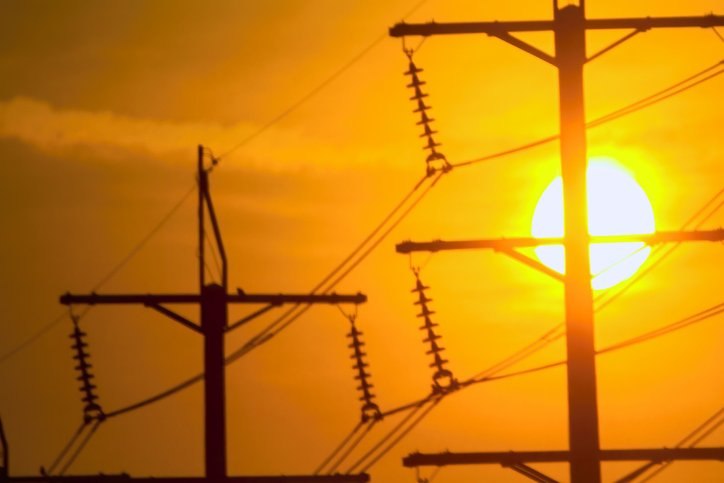Back in the days before the internet was even a figment of our imagination and I was a naïve young reporter I asked my seasoned old editor what was the definition of news. He did not hesitate: “News, laddie, is what they’re talking about in the pub tonight.” I’ve heard many definitions since then but none that beats that for its simplicity and, dare I say it, wisdom.
No editor will choose a story to lead their newspaper or bulletin if their readers or viewers are not likely to be interested in it. That simple reality came to mind again this past week when I happened upon a story that you might have thought would dominate the news agenda – or at least form a major part of it. Instead it sank without trace. It merited barely a mention in many of the papers or on the broadcast news programmes.
It was a story about the end of human life as we know it.
Okay, I exaggerate a little. But it is entirely possible that if you were reading these words in, say, a generation or even a decade from now you might think the exaggeration was justified. The story is based on a report from the European Union’s Copernicus Climate Change Service. Here’s what those eminent scientists concluded:
Last month was the warmest February on record globally. That makes it the ninth month in a row with record temperatures for the time of year. Global sea surface temperatures are also at their highest ever recorded.
The data shows February was 1.77C warmer than the pre-industrial average for the month, from 1850 to 1900, and 0.81C above 1991-2020 levels. The global average temperature for the past 12 months – between March 2023 and February 2024 – was the highest on record, at 1.56C above pre-industrial levels.
You may (or may not) recall that 1.5 degrees centigrade has been agreed by scientists and governments the world over as the threshold beyond which the world’s temperature must not be allowed to rise. That’s when the ice caps would begin to melt and sea levels rise and tens of millions of people would be at risk of massive flooding and storm surges. It was known as the Paris Agreement. It was reached back in 2015. What the Copernicus scientists have now agreed is that that threshold has been passed. So let’s look at some of the details from their report.
Daily global average temperatures were “exceptionally high” during the first half of the month. They reached 2C above 1850-1900 levels on four days from 8 to 11 February. European temperatures last month were 3.3C above the 1991-2020 average for the month, with temperatures well above average seen in central and eastern Europe. Europe’s winter, from December to February, was the second warmest on record for the continent.
Average global sea surface temperatures for February, outside the polar regions, were the highest for any month on record, at 21.06C, exceeding the previous record of 20.98C set in August 2023. The average daily sea surface temperature reached a new absolute high of 21.09C at the end of the month. The world's sea surface is at its hottest on record, while Antarctic sea-ice has again reached extreme lows.
Carlo Buontempo, the director of the Copernicus Climate Change Service, said: “February joins the long streak of records of the last few months. As remarkable as this might appear, it is not really surprising as the continuous warming of the climate system inevitably leads to new temperature extremes.
“The climate responds to the actual concentrations of greenhouse gases in the atmosphere, so unless we manage to stabilise those, we will inevitably face new global temperature records and their consequences.”
And what might those consequences be? Here’s how another distinguished scientist, Dr Friederike Otto, of the Grantham Institute for Climate Change and the Environment, Imperial College London, said: “There’s now so much evidence pointing to the fact that our climate is warming, if you want to deny climate change, you might as well claim the Earth is flat, too. Billions of measurements from weather stations, satellites, ships and planes point to the very basic fact that our planet is heating up at a dangerous pace.
“People should not be surprised that we have broken another record. Humans continue to burn oil, gas and coal, so the climate continues to warm. It is a very well understood relationship. There is no silver bullet or magic fix for climate change. We know what to do: stop burning fossil fuels and replace them with more sustainable, renewable sources of energy. Until we do that, extreme weather events intensified by climate change will continue to destroy lives and livelihoods.”
It's true that temperatures are still being boosted by the Pacific's El Niño weather event, but human-caused climate change is by far the main driver of the warmth. Prof Celeste Saulo, Secretary General of the World Meteorological Organization, agrees. He says heat-trapping greenhouse gases are “unequivocally the main culprit." Carbon dioxide concentrations are at their highest level for at least two million years and increased by near-record levels again over the past year.
By any measure this is an important story. Indeed it’s hard to think of one that’s more important. So why has it been virtually ignored by most of the mainstream news outlets in the country? Could it be because we’re not talking about it in the pub? Or indeed, it seems, anywhere else. And why is that?
It could be, quite simply, that we are bored with climate change. But that answer leads to another obvious question. Why? How is it possible to be bored with a crisis that threatens our very existence?
Perhaps the answer is that it threatens some of us more than others. The greatest threat, obviously, is to those who live in regions such as sub-Saharan Africa where drought – an ever-present threat to the poorest - is beginning to destroy what little they have. They must watch their crops shrivel when the rains fail and their livestock starve. Or those who live on the coast of countries such as Bangladesh where floods from rising sea levels are driving them from land they have farmed for centuries. Or even those in prosperous countries such as Greece who watch forests and villages destroyed by wildfires.
The contrast between us and them is almost too painful to contemplate. For many (if not most) of us the immediate reaction to our increasingly unpredictable weather is to escape to somewhere sunny for a welcome break. Or, rather, to fly to somewhere sunny. And thus pump even more carbon into the atmosphere.
In winter we might escape to the Alps to enjoy a skiing holiday. Except, of course, that climate change is making that increasingly problematic. The snow is vanishing. Should we sympathise with those who despair when they see pictures of their favourite ski resort having to pump artificial snow onto the few slopes remaining? Or condemn anyone who considers flying off to an alpine region for the sole purpose of sliding at speed down a hillside regardless of the carbon cost?
Is this too uncharitable? Isn’t it true that many of us do our damndest to reduce our carbon footprints? Don’t we turn down the thermostats a little and even change our gas guzzler car for an electric car? Assuming, of course, we can afford it and don’t worry too much about the shortage of charging points and “range anxiety”. And as for flying? Well… aren’t we entitled to get away occasionally for a little break and perhaps see a bit of the world we’ve never been to before?
Well perhaps. But it remains a shameful fact that the carbon emissions of the richest one per cent of the global population are massively greater than the poorest 50 per cent. We produce 22 times the amount needed to make us compatible with the goal set by the Paris Agreement. The poorest produce one per cent of that goal.
Could that be another reason why the Copernicus report received so little coverage in this, one of the richest countries on the planet? Could it be that those who are in charge of delivering our news calculate that we do not want to be endlessly reminded that at the heart of the climate crisis there is a profoundly moral dilemma? The rich enjoying life as usual at the devastating expense of the poor.
Or could it be that everyone is well aware of the crisis facing the planet as a result of climate change and we, the middle classes, are doing what we can. So endlessly preaching the same sermon is going to have little effect and might even be counterproductive?
Let us know what you think.







